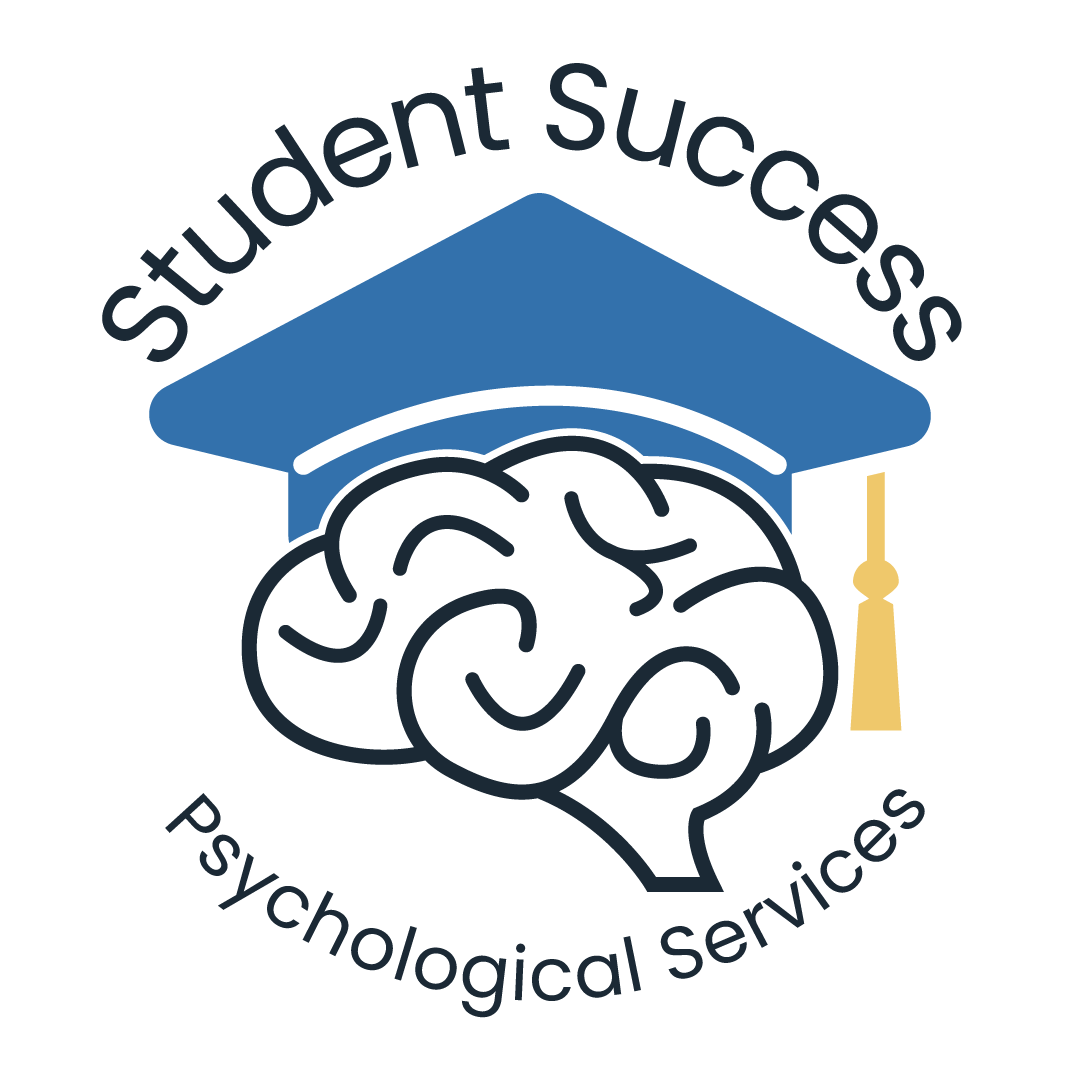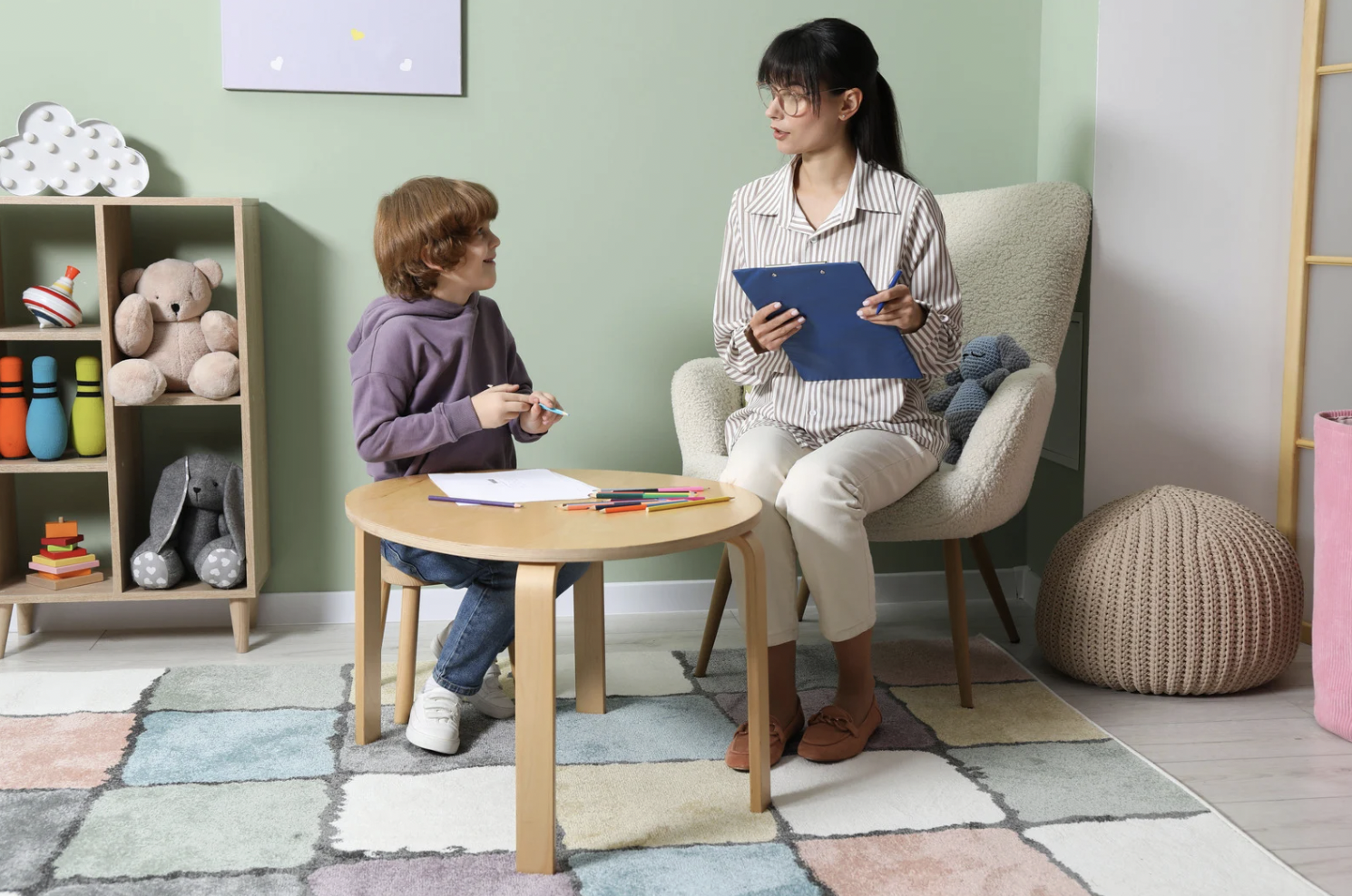What Is School Psychology?
Celebrating National School Psychology Week: November 3–7, 2025
School psychology is a field dedicated to helping students thrive academically, socially, behaviorally, and emotionally. School psychologists work closely with families, teachers, and communities to identify challenges, provide interventions, and create supportive learning environments.
National School Psychology Week is the perfect time to understand the role these professionals play in students’ lives and how they make a difference every day.
How School Psychologists Support Students
School psychologists wear many hats and their work can vary depending on the needs of students and schools. Some of the ways they support students include:
Academic Support and Evaluations: School psychologists often conduct assessments to understand learning challenges, such as difficulties with reading, math, or attention. These evaluations help teachers and families create individualized learning plans or accommodations tailored to a student’s needs.
Emotional and Mental Health Support: They provide individual or group therapy, social skills training, and interventions for students experiencing anxiety, depression, stress, or trauma. They help students develop coping strategies and emotional regulation skills.
Behavioral Support: School psychologists help students manage behaviors that may interfere with learning or relationships. They work with students, teachers, and families to develop behavior plans and strategies for promoting positive behavior.
Consultation and Collaboration: They collaborate with teachers, families, and other school professionals to design interventions, improve classroom strategies, and create a safe, positive school climate.
Crisis Response and Prevention: School psychologists help schools respond to crises such as bullying, accidents, or the sudden loss of a community member. They also contribute to prevention programs that support student well-being.
Connecting Families to Community Resources: When students need additional support outside of school, school psychologists can connect families to mental health providers, tutoring services, or other community resources.
Leaders in Prevention: School Psychologists and MTSS
One of the most important ways school psychologists support schools is through their leadership in Multi-Tiered Systems of Support (MTSS), which is a prevention-based framework that helps schools meet the academic, behavioral, and social-emotional needs of all students.
MTSS is built on the idea that every student can succeed when they receive the right level of support. School psychologists help design, implement, and evaluate these tiered supports:
Tier 1: School-wide supports for all students, such as positive behavior programs and social-emotional learning.
Tier 2: Small-group or targeted interventions for students who need extra help.
Tier 3: Intensive, individualized interventions for students with more significant challenges.
By using data and collaboration, school psychologists help schools identify which students need additional support early, before problems become serious. This proactive, prevention-oriented work is a cornerstone of school psychology and one of the reasons school psychologists are essential members of leadership teams in schools.
Where School Psychologists Work
School psychologists are most commonly employed in public and private schools, working with children from preschool through high school. However, their expertise can also be applied in:
Private practices providing therapy and consultation to families and schools
Universities and research institutions conducting studies on learning, behavior, and mental health
Community organizations offering educational and mental health services
School districts or government agencies supporting policies and programs to improve student outcomes
This flexibility allows school psychologists to support students across a variety of settings, ensuring their skills benefit not just individual students but the broader school community.
How School Psychologists Differ from School Counselors and Other Professionals
Although school psychologists, counselors, social workers, and other specialists all support students, their roles are different:
School Psychologists: Focus on learning, behavior, and mental health. They provide assessments, therapy, interventions, and consult with teachers and families to help students overcome challenges.
School Counselors: Focus primarily on academic planning, career guidance, and personal/social support.
Other Specialists: Social workers or behavior specialists provide counseling or behavioral support, but school psychologists combine mental health, assessment, and educational expertise to help students succeed academically and emotionally.
Training and Expertise You Can Trust
School psychologists complete advanced graduate-level training in both psychology and education. Their programs include coursework, hands-on field experience, and a year-long supervised internship of roughly 1,200 hours.
After graduation, school psychologists meet state credentialing requirements and often earn NASP’s Nationally Certified School Psychologist (NCSP) credential, demonstrating that they have met national standards for practice. This extensive preparation equips school psychologists to address a wide range of student needs, from learning challenges to social-emotional development and mental health concerns.
Why School Psychologists Matter
Students may face challenges at any point, whether learning difficulties, social struggles, or emotional challenges. School psychologists provide support early and consistently, helping students:
Identify and address learning difficulties or behavioral concerns
Develop coping and problem-solving skills
Build resilience and social-emotional skills
Succeed academically and personally
By collaborating with families, teachers, and communities, school psychologists create an environment where all students can feel safe, supported, and capable of reaching their full potential.
Key Takeaways
School psychologists support students’ learning, behavior, and emotional well-being.
They provide evaluations, therapy, behavioral support, and crisis intervention.
They collaborate with families, teachers, and community resources to create effective support plans.They work in schools, private practices, research, and community organizations.
National School Psychology Week is a great opportunity to recognize their work and understand how they can help your child thrive.
Resources:
National Association of School Psychologists (NASP) Website:


